Mexico’s Constitutional Reforms Conference | Implications for US-MX Relations
This conference will delve into the far-reaching consequences of Mexico’s proposed constitutional reforms, with a particular focus on the judicial reform, electoral reform, and autonomous agencies reform, as well as other reforms with economic implications for Mexico and the United States. The discussions will revolve around how such constitutional changes could reshape the nation's democracy and financial outlook and influence U.S.-Mexico relations.
The panel discussions with former Mexican officials, lawyers, academics, and consultants will foster a vibrant and productive dialogue. The event will aim to deepen understanding of the reforms and analyze potential risks to political stability, trade, and diplomatic engagement, underscoring the critical need for informed discussion and strategic planning.
The views expressed by panelists are their own and not representative of the organizations and institutions with which they may be affiliated.
1:00 pm – 1:15 pm
Welcoming Remarks
-
Lila Abed, Director, Mexico Institute
1:15 pm – 2:15 pm
Panel 1 - Judicial Reform
-
José Ramón Cossío: Member of El Colegio Nacional and Researcher at El Colegio de México (Colmex)
José Ramón Cossío Díaz is a Mexican lawyer who served as Minister of the Supreme Court of Justice of Mexico from December 2003 to November 2018. He has also been a professor at various institutions, such as the National Preparatory School of UNAM, the Instituto Tecnológico de Estudios Superiores de Monterrey -Unidad Colima—and the Faculty of Law of UNAM. Throughout his career, he has received various recognitions, such as the Benito Juárez-Peña Colorada Award, the Research Award from the Mexican Academy of Sciences, and the National Award for Sciences and Arts in the areas of History, Social Sciences, and Philosophy. He has written many books and published articles and memoirs in a variety of journals, magazines, and newspapers. Since 2014, he has been a member of the National College.
-
María Amparo Hernández Chong Cuy, Circuit judge / Researcher
Judge of the Eighteenth Collegiate Court in Administrative Matters of the First Circuit of the Federal Judicial Branch (PJF), Mexico. Former primary Legal Counselor and Secretary of Study and Account at the Supreme Court of Justice of the Nation assigned to the office of Minister José de Jesús Gudiño Pelayo, as well as Plurinominal Magistrate of the Electoral Tribunal of the PJF. She has published several texts in collective books, specialized magazines, and newspapers. Her book "Suprema Corte y Controversias Constitucionales, Análisis de comportamiento judicial" was recently published. She has completed studies at UNAM, the Latin American Faculty of Social Sciences (FLACSO-Mexico), Universidad Panamericana, University of Salamanca, Pompeu Fabra University, Barcelona, and research fellowships at the Spanish Constitutional Court, the European Court of Human Rights, and the Inter-American Court of Human Rights.
-
Francisca Pou Giménez: (Virtual) - Senior Researcher at the Institute for Legal Research of UNAM and a Lecturer in Law at ITAM.
Francisca Pou Gimenez is a Senior Researcher at the Institute for Legal Research of the National Autonomous University of Mexico (UNAM) and a Lecturer in Law at the Instituto Tecnológico Autónomo de México (ITAM). Francisca is a former assistant professor in the Constitutional Law department of Pompeu Fabra University in Spain, where she also obtained a law degree (1995-1998). She began working in Mexico as a Law Clerk to Justice José Ramón Cossío Díaz in the Supreme Court of Mexico (2004-2011). Afterwards, she was an assistant professor at ITAM from 2011-2018, beginning a tenured associate professor position in 2018. In 2022, she began lecturing at ITAM and became a senior researcher – Title C for the Institute of Legal Investigations at UNAM. In addition to these roles, she has become a level III researcher for the National System of Researchers (SNI) since 2024.
-
Moderator: Jesús Silva-Herzog Márquez: Journalist & Political analyst
Jesús Silva-Herzog Márquez is a distinguished Mexican writer, journalist, and professor with a specialization in political theory and science. His scholarly work centers on the history of political ideas, particularly the development of liberalism and its relationship with democratic ideals. Additionally, he has delved into the political essay as a nuanced approach to understanding the complexities of power. Currently, he serves as a professor at the School of Government and Public Transformation at Tecnológico de Monterrey (ITESM). He has also held prestigious positions as a visiting researcher at Georgetown University and the Woodrow Wilson International Center for Scholars. Silva-Herzog Márquez is a regular contributor to LatinUS and Reforma. His insights also appear frequently in the magazines Nexos and Letras Libres. In 2013, he was honored with election to the Mexican Academy of Language.
2:20 pm – 3:20 pm
Panel 2 - Electoral Reform
-
Lorenzo Córdova: Professor and Researcher, Institute of Legal Research, UNAM
Lorenzo Córdova is former president of Mexico’s National Electoral Institute (INE) and a professor at the Universidad Nacional Autónoma de Mexico (UNAM), where he specializes in constitutional theory, constitutional law, and electoral law. Lorenzo is also a researcher at UNAM’s Institute of Legal Research, a member of Mexico’s National Council of Science and Technology, and has authored several publications on electoral, constitutional, and political theory issues. He previously taught at the Center for Economic Research and Teaching (CIDE) and the Latin American Faculty of Social Sciences (FLACSO) in Mexico and has held public service positions including electoral advisor to the Federal Electoral Institute (IFE).
-
Ciro Murayama: Professor, UNAM
Ciro Murayama is currently a level 1 researcher at the National System of Researchers and a professor of the faculty of Economy at UNAM and a fellow at the Center for US - Mexican Studies. He was advisor to the former president of the Federal Electoral Institute (IFE, in Spanish), José Woldenberg from 1999-2003. Later, he was a member of the technical committee of the Preliminary Electoral Results Program (PREP) of the federal electoral processes from 2008-2009 and 2011-2012. He served a role in public administration, acting as Executive Research Coordinator at the Belisario Domínguez Institute of the Senate of the Republic (2013-2014). He is a former member of the General Council of the National Electoral Institute (INE).
-
Luis Carlos Ugalde: Director General, Integralia Consultores
Luis Carlos Ugalde is a Reagan-Fascell fellow at the National Endowment for Democracy in Washington, D.C. He was president of Mexico's Federal Electoral Commission (IFE) from 2003–2007, presiding over the country’s bitterly contested 2006 presidential election. Dr. Ugalde has taught at various universities across Mexico and the United States, among them the Instituto Tecnológico Autónomo de México (ITAM), the Center for Economic Research and Teaching (CIDE) in Mexico City, Georgetown University (2002), and American University (2000). In 2008, he was the Robert F. Kennedy Visiting Professor of Latin American Studies at Harvard University, where he had also been a fellow at the David Rockefeller Center for Latin American Studies in 2001. In addition to his role at IFE, Dr. Ugalde has held various positions within the Mexican government, including chief of staff to the Secretary of Energy (1997) and chief of staff at the Embassy of Mexico to the United States (1997-2000).
-
Moderator: Blanca Heredia: Political Analyst
Blanca Heredia is currently an investigative professor and founding director of the Interdisciplinary Program on Politics and Educative Practices since 2012. She is also a visiting professor at the Hebrew University at Jerusalem, Northwestern, Georgetown, and others. She occasionally writes columns in El Financiero. Blanca was the academic secretary at the Center of Investigation and Economic Teachings (CIDE) from 1996-2004. She went on to be the Director of the Center for Democratic Development of the Federal Electoral Institute (IFE) and the academic vice-rector of American University in Paris. She represented the Organization for Economic Cooperation and Development (OECD) in Mexico for Latin America from 2007-2009. also served as commissioner for political development at the Ministry of the Interior from 2009-2010, before being a visiting professor at Georgetown University.
BREAK
3:20 pm – 3:35 pm
3:35 pm – 5:00 pm
Panel 3 - Autonomous Agencies & Economic Reforms
-
Alejandra Palacios, Independent Board Member of Grupo Aeroportuario del Pacifico, BBVA Mexico and Grupo Al
Alejandra Palacios Prieto is a public policy expert specializing in policy strategy, antitrust, and network industries, including energy, transport, banking, and telecom. She serves as an Independent Board Member of Grupo Aeroportuario del Pacifico (NYSE: PAC; BMV: GAP), Mexico´s largest airport operator –where she sits in the Sustainability Committee–, of BBVA Mexico, Mexico’s largest financial institution, and of Grupo Alfa (BMV: ALFAA). Alejandra was the pioneering female Chair of Mexico’s antitrust agency from 2013 to 2021, where she steered the agency through groundbreaking antitrust cases, securing its global reputation as a top competition authority. Her leadership at COFECE also led to the agency's recognition of gender equality, achieving the prestigious EDGE Certification, the first for a public entity in the Americas. Alejandra's international influence extended through her roles as Vice President of the International Competition Network –the premier global organization on antitrust comprised of 140 competition authorities– and as a member of the OECD's Competition Committee Board.
-
Gonzalo Hernández Licona , Director, Multidimensional Poverty Peer Network.
Gonzalo Hernández Licona is currently the director of the Multidimensional Poverty Peer Network (MPPN-OPHI), where he coordinates 60 countries and 19 international institutions to advance and exchange ideas about implementing Multidimensional Poverty Indicators. Gonzalo also works with UNICEF on country-led evaluations. He was a professor at the Instituto Tecnológico Autónomo de México (ITAM) from 1991-2002 and then the general director of monitoring and evaluation at Mexico’s Ministry of Social Development (2002-2005). Following this, Gonzalo was the executive secretary of the National Council for the Evaluation of Social Policy (CONEVAL) between 2005 and 2019, where he coordinated the evaluation of the social and the measurement of poverty at the national, state and municipality-level.
-
Carlos Ramirez, Partner, Integralia Consultores
Carlos Ramírez is a political risk expert with 25 years of experience combining private
and public practice. A former member of Mexico´s Financial Stability Board (2013- 2018), he joined Integralia, a Public Affairs and Political Risk consultancy firm, in 2018. For the period 2013-2018 he was the Chairman of the National Commission of Retirement Savings System (CONSAR), the regulator of Mexico ́s pension system. Before becoming President of CONSAR, he was responsible for assessing Mexico's political risk for the global leading political risk consultancy firm, The Eurasia Group where he advised companies from the financial, energy, retail, mining, manufacturing, and telecom industries (2010-2012). He was previously Chief Communication Officer at Pemex (2006-2009) and the Communication Officer of the Ministry of Finance. He was also chief economist of local brokerage firm (Banorte).
-
Viridiana Rios, Former Global Fellow, Mexico Institute
Viri Ríos is a Mexican journalist and academic. She is a columnist at the European newspaper, El País, and an instructor of U.S.-Mexico politics at Harvard Summer School. Profiled as a “mover and shaker of Mexico’s civil society” by the British magazine The Economist, Viri is a thought leader, writer and activist that relies on cutting edge data analysis and research journalism to advance an acute understanding of the most pressing social problems of Mexico, and to convey creative solutions to them. Her most recent book, #NoEsNormal. The rigged game that fuels Mexican inequality and how to change it, explores how to create a fair, inclusive, and prosperous Mexico by changing fiscal, labor and competition regulations. Her academic research has led her to become a visiting assistant professor at Harvard and Purdue University, as well as to receive the American Political Science Association's award for the best public administration dissertation in 2014.
-
Moderator: María Calderón Escobedo: Program Associate, Mexico Institute
María Calderón is the Program Associate of the Mexico Institute. Before joining the Mexico Institute, María was a Graduate Fellow for the Mexico practice at McLarty Associates in Washington, D.C. She previously served as a Research Assistant for Georgetown Law´s Center for the Advancement of the Rule of Law in the Americas (CAROLA), where she specialized in Mexico´s Investor-State Dispute System (ISDS) framework and institutions. She also has extensive experience in legal translation projects and was a monthly columnist for Página Uno.María served as a Legal Associate and Project Manager for several years at a Mexican boutique law firm's administrative and regulatory law practice in Mexico City.
4:55 pm – 5:00 pm
Closing Remarks
-
Ambassador Anthony Wayne, Former U.S. Ambassador to Mexico and Co-Chair of Mexico Institute’s Advisory Board
Speakers
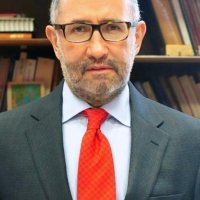



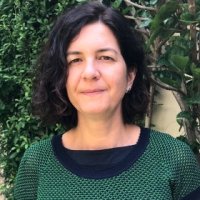
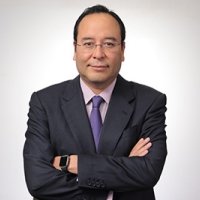



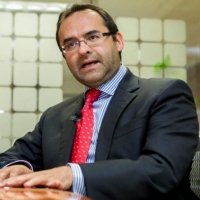

Journalist & Political analyst
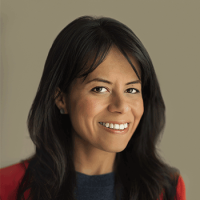
Columnist, El Pais; Instructor of US-Mexico politics at Harvard Summer School

Hosted By

Mexico Institute
The Mexico Institute seeks to improve understanding, communication, and cooperation between Mexico and the United States by promoting original research, encouraging public discussion, and proposing policy options for enhancing the bilateral relationship. A binational Advisory Board, chaired by Luis Téllez and Earl Anthony Wayne, oversees the work of the Mexico Institute. Read more
